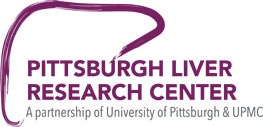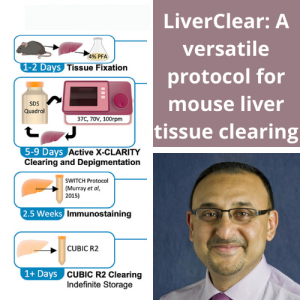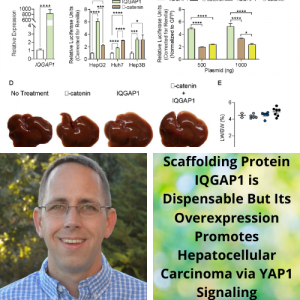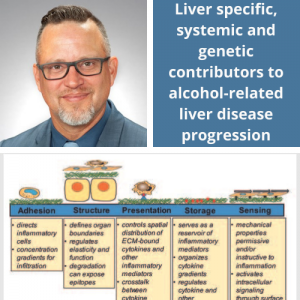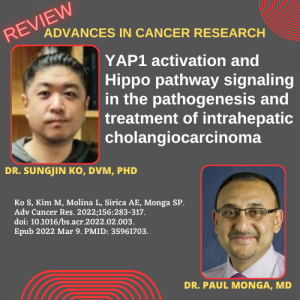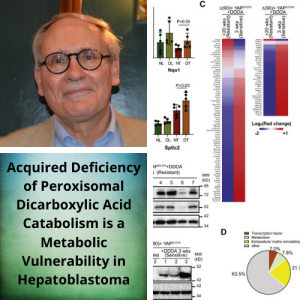Dr. Sungjin Ko, DVM,PhD authored an editorial in the journal Cellular & Molecular Gastroenterology and Hepatology entitled “Trailblazing TRAIL Therapy: Illuminating Pathways for Cholangiocarcinoma Treatment“
Ko S. Trailblazing TRAIL Therapy: Illuminating Pathways for Cholangiocarcinoma Treatment. Cell Mol Gastroenterol Hepatol. 2024 Feb 28:S2352-345X(24)00036-5. doi: 10.1016/j.jcmgh.2024.02.008. Epub ahead of print. PMID: 38431266.
Excerpt:
Cholangiocarcinoma (CCA) is a devastating malignancy, with an increasing incidence and a low 5-year survival rate (∼10%). High intratumoral and intertumoral heterogeneity restricts treatment options to the broad-spectrum, first-line regimen of gemcitabine/cisplatin chemotherapy. Unfortunately, patients on this treatment regimen typically achieve only a 10%–15% overall response rate with limited survival benefits of up to 1 year, thus underscoring the urgent need for alternative broad-spectrum therapeutic targets. Overall, treatment of CCA represents a significant unmet clinical challenge.
TNFSF10 (TRAIL), a member of the tumor necrosis factor α superfamily, holds significant promise in the field of cancer research, particularly in immune modulation, implying potential synergism with personalized approaches, such as ICI and/or anti-angiogenic therapies. TRAIL signaling has garnered attention for its remarkable ability to selectively target cancer cells while sparing healthy tissue, a feature distinct from other tumor necrosis factor α superfamily members such as FASLG. This selective cytotoxicity serves as the foundation of targeting the TRAIL–TRAIL-receptor pathway, and positioning it as a promising avenue for therapeutic intervention in various malignancies, including CCA.
